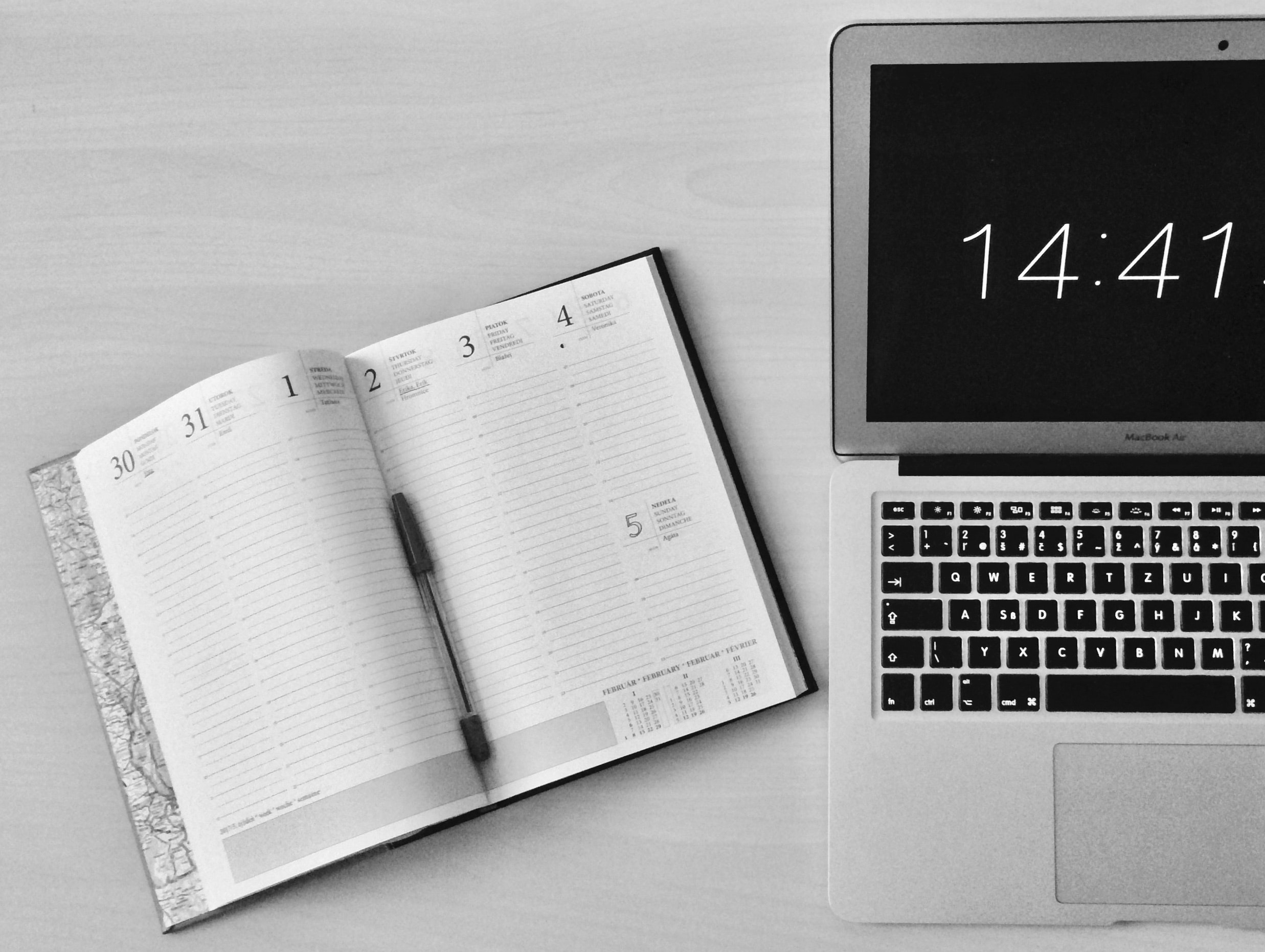Time Management Tips for Freelancers

TABLE OF CONTENTS
- Freelancer Challenges
- Significance of Time Management
- Time Management: Why It Matters?
- Essential Time Management Tips for Freelancers
- Segmenting Work Hours: Taking Control of Your Day
- Ensuring Rest: Sleep Matters
- Utilization of Time Management Tools
- Combining Work and Home: Active Environment Management
- Recap
- In Conclusion

Freelancers, such as ghostwriters, face a particular set of challenges in terms of time management due to their unique professional lifestyle.
Freelancer Challenges
Task Underestimation: Estimating time for diverse projects can be difficult.
Work-Life Imbalance: It can be hard to separate professional and personal life.
Remote Distractions: Working from home or coffee shops can present numerous distractions.
Work Monotony: The isolation of freelance work can lead to lowered productivity.
However, time management isn't simply about task completion—it directly influences work quality, goal attainment, and overall business success.
Significance of Time Management
There are 41% of workers who feel burned out due to excessive workloads, including working remotely, working longer hours, all while having to juggle family responsibilities. Efficient time management leads to:
Lowered stress levels
Improved productivity
More opportunities
Better understanding of work limits
Ultimately, it equips freelancers to optimize flexibility and efficiency.
Skills Required
Effective time management encompasses:
Task prioritization
Clear goal setting
Organized work patterns
Ability to minimize distractions
In essence, mastering time management can feel like gaining extra hours in your day. Given its significance for freelancers, herein is a comprehensive guide replete with actionable advice to help master this skill. Because time waits for no one, especially not for the multi-tasking freelancer!
Time Management: Why It Matters?
In any field of work, time management plays an integral role in determining productivity. Freelancing, by its nature, is no exception. The connection between time management and productivity is straightforward: the better you manage your time, the more productive you become. It's a simple equation but applying it can often be complex, particularly when juggling multiple tasks and deadlines, as many freelancers do.
The Work from Home Opportunity
One of the most significant advantages of freelancing is the opportunity it presents to work from home. But, does working from home really increase productivity? The answer is not an outright 'yes' or 'no' but a fascinating, 'it depends'. It largely relies on how one manages their time while working from home.
The lure of working in your pajamas, with no commute, and having a flexible schedule can infuse an immediate sense of freedom. However, this freedom has a flipside - it's accompanied by distractions, blurred boundaries between personal and professional space, and the unexpected interruptions that running a household can bring.
If managed well, working from home can not only increase productivity but also contribute to better work-life balance. Improved time management refines the ability to focus, thereby enabling you to complete tasks more efficiently. Furthermore, avoiding rush-hour traffic or eliminating a commute altogether can give you extra hours that contribute to enriching productivity.
It's All About Balance
So, the next time someone queries, 'does work from home increase productivity?', you now know that the answer is nested within the question itself. It’s not essentially about where you work, but about how effectively you manage your time while working. Good time management can lead to enhanced productivity, irrespective of the working environment.
And for freelancers who usually suffer from flexible-schedules-gone-awry, mastering the art of time management can be their secret productivity weapon.

Essential Time Management Tips for Freelancers
Freelancers, take note: the ball is in your court when it comes to dividing and maximizing your time. Let's discuss some useful strategies to keep you on track.
1. Set Your Priorities
First off, prioritize! Not all tasks are created equal. Use the Eisenhower Matrix, a simple four-quadrant box, to separate your tasks into Urgent/Not Urgent and Important/Not Important. This will guide you in recognizing what really needs your attention right away and what can wait.
2. Keep Yourself on Track
Secondly, stick to a schedule! Einstein was onto something when he chalked everything to relativity. Your sense of time could be elastic when there's no 9-5 timeline. Set rigid working hours and adhere to them just as you would in an office environment. Use planners, digital calendars, or apps to keep you in check.
2. Avoid Distractions
Next, are you susceptible to the appeal of push notifications? Consider turning them off during work hours. Unchecked, these digital interruptions can fragment your focus and stymy your productivity flow. It can take up to 23 minutes to refocus your efforts after just one interruption.
So, be sure to designate specific times to check and engage with emails and social media to curb these time leeches.
3. Plan. Plan. Plan.
Allocate time for brainstorming and planning each week. While it may seem counter-productive not diving straight into work, investing time in proper content planning can lead to time saved in the long run.
Remember: Rome wasn't built in a day, and neither are outstanding freelance projects. Break down big tasks into bite-sized, manageable parts to avoid feeling overwhelmed. Use this technique, called micro-tasking, to make substantial progress over time.
4. Learn and Adapt
Finally, always be observing and adapting. What worked today might not work tomorrow. Keep experimenting with different strategies until you find a pattern that fits your freelance lifestyle best.
There's no one-size-fits-all here - as with most things in freelancing, time management tips can (and should!) be tailored to your unique needs.
Segmenting Work Hours: Taking Control of Your Day
If you've ever felt like your work day is a runaway train, segmenting work hours could be the brake control you've been looking for. This strategy involves dividing your day into clear cut, focused chunks of time with specific tasks assigned to them. It's like putting your day into different, dedicated boxes - each box being a unique work segment.
Gain Control of Your Every Day
The benefits? It's plenty, really. For one, it enables you to gain more control over your day. When you have a clear schedule that lays out all your tasks, it's much easier to tackle responsibilities without getting overwhelmed. Plus, you're less likely to fall prey to multitasking—a notorious productivity and time killer, by the way.
Find Your Peak Hours
Another ace up its sleeve is the potential to marry your most demanding tasks with your 'peak productivity' hours. This is different for everyone. Some people are in their element early morning, while others are night owls.
By identifying when you’re most productive, you can schedule high-demand tasks for those times. This way, you’re making the most out of your peak energy levels—efficient and smart, don’t you think?
The goal of segmenting isn’t to cram as much work as possible into every hour of the day though. Instead, it's about making your work hours work for you. It's about efficiency and control. It's about handling what can be handled today, and pegging what can wait for tomorrow.
So, give segmenting a whirl and take charge of your freelance journey from a standpoint of informed decision rather than reckless urgency.
Ensuring Rest: Sleep Matters
For those immersed in the hustle of freelancing, sleep is not just a luxury—it's a necessity. Often overlooked, adequate sleep plays an underrated yet quintessential role in productivity levels, creativity, and overall quality of work. In fact, ensuring a good night’s sleep helps sharpen the brain, stabilize mood, and restore energy.
The importance of sleep is quite straightforward. Humans need 7-9 hours of uninterrupted sleep every day to function at their best. And no, this isn't just some arbitrary number conjured up to keep sleep solution providers in business. Science backs it up.
Picture this. When we sleep, our cells undergo repair and regeneration. Fresh ideas and solutions can subtly brew in our subconscious mind. Additionally, the body releases hormones that manage stress and maintain immunity. In a nutshell, sleep is the unsung hero that keeps our bodies and minds in shipshape, ready to take on each new day with gusto and vigor.
Making the Most of Your Rest
In practical terms, perhaps designating specific 'rest hours' in your freelance schedule might work.
Blocking out the outside noise, literally and figuratively, can be your litigation against ever-existing distractions. Limit caffeine at bedtime, establish a consistent sleep schedule, and create a serene environment conducive to sleep. Your bedroom should be a sanctuary of rest and resurgence, not a hub of electronics and anxiety-spiking tasks.
In the world of freelance, sleep isn't for the weak. It's for the wise. So, turn off the lights, shut down your laptop, and embrace the rejuvenating power of sleep. Time may be money in freelancing, but rest is the asset that underpins all else.
Remember, getting enough sleep is not a hurdle to effective time management. Instead, it's an integral part of it. Better rested equals better prepared. And a better prepared freelancer is a successful one.

Utilization of Time Management Tools
In the digital age, freelance professionals have a plethora of technological tools at their fingertips designed to make time management more efficient. From simple calendars to sophisticated artificial intelligence (AI) applications, these tools can be a game-changer in how you conduct your daily tasks.
Digital tools allow freelancers to manage their tasks and deadlines more effectively. Simple online applications like Google Calendar or Asana can substantially improve organization by letting you visualize your work schedule and set reminders for important tasks or deadlines.
Additionally, tools like Toggl or RescueTime can help freelancers track time spent on individual tasks, providing insights to optimize productivity.
Embrace AI Tools
Going a step further, we enter the realm of AI tools designed for time management. AI writing software is one such tool. These programs, leveraging machine learning and natural language processing, help you create content more quickly and efficiently, alleviating the burden of time-consuming writing tasks so you can focus more on other areas of your work.
For instance, AI writing software can augment your writing efficiency. Remember that the key to successfully utilizing these tools is to test a few and then adapt those that align best with your workflow and fit seamlessly into your routine.
By leveraging these digital and AI tools, freelancers can optimize their time and achieve a streamlined, highly productive workday. It's all about working smarter, not harder. Harnessing the power of these technologies can ultimately contribute to your success as a freelancer, helping you master the art of time management.
Combining Work and Home: Active Environment Management
As a freelancer, your workspace is most likely also your home - a great convenience, but one that presents its own unique set of challenges. After all, the line between work and personal life can blur easily when your office is just a few steps away from your living room, or even more, maybe it's part of it.
Active environment management is essentially about striking that delicate balance, creating a productive work environment without compromising those home comforts that make your work-from-home lifestyle worthwhile.
Designate a Work Space
This begins with designating a specific area just for work. It doesn't have to be an entire room – even a corner that's well-lit, quiet, and shielded from the day-to-day activities of your home can work. When you're in your designated workspace, you're 'at work,' and when you step away, you're 'at home.'
Make Your Work Space, Conducive to Work
Incorporate elements into your workspace that boost productivity. A comfortable chair, an ergonomically balanced desk, and organized stationery are just starters. If a tidy environment spurs your creativity, make sure to clean up the space at the end of your workday. If you thrive in a mess, find happiness in your creative chaos. Your work environment should fit your style.
Distraction Management
Managing distractions is another key aspect of active environment management. Silence your personal phone, limit social media usage, and create house rules for cohabitants during your work hours. Family and friends should understand that while you're at home, you still have work commitments that need undisturbed focus.
Don't Forget to Take a Break
Lastly, take time to break away from work. Taking breaks can't be understated. It's easy to overwork when your office is right next door. Schedule frequent short breaks, go for a walk, or even just sit and sip your favorite beverage. These little restorative moments matter. They rejuvenate you and bring in a fresh perspective, adding to both your productivity and work satisfaction.
Being a freelancer requires you to seamlessly merge your work and home lives. But with active environment management, you can enable a productive work environment while simultaneously enjoying the benefits of working from home. Remember, it's always about finding your balance.
Recap
Just as we take the final lap in our discussion, it's clear that effective time management, as a freelancer, isn't a walk in the park. However, it's a pivotal element that directly impacts the quality and productivity of your work.
This article shed light on several essential aspects: the undeniable link between time management and productivity, the compelling approach of segmenting work hours, and the significant role of adequate sleep. We also acknowledged the undeniable benefits of time management tools, particularly those AI-enabled, to keep everything streamlined and under control.
Active environment management, combining home and work life successfully, also emerged as a critical cog in the wheel. Simply put, when juggling between personal life and work space, being able to flexibly adapt without hampering either, speaks volumes about your time management prowess.
In Conclusion
As you continue on your freelancing journey, these nuggets are not just mere options, they're valuable gears in the machinery of your work life. Keep in mind that adopting and adapting to these time management tips isn't an overnight feat. It’s more of a continuous journey of practicing, learning, and enhancing to tailor it to your unique freelancing style and demands.
Get the ball rolling, start implementing these strategies today. We bet you'll soon see the uplift in your productivity, quality of work, and general well-being. Freelancing is supposed to provide freedom and control over your work life. It can indeed be so with effective time management. Lace up, step up and conquer your day, one ticked task at a time!
1SecondCopy
We hired the top 1% of writers so you don't have to. Get high quality articles & posts in just 3 days.